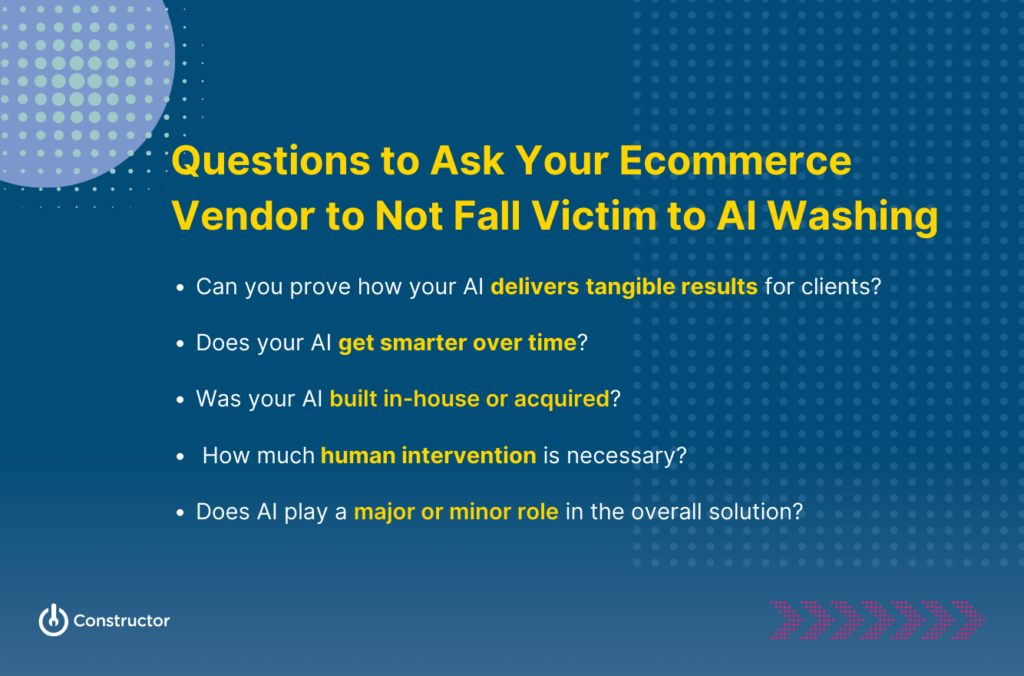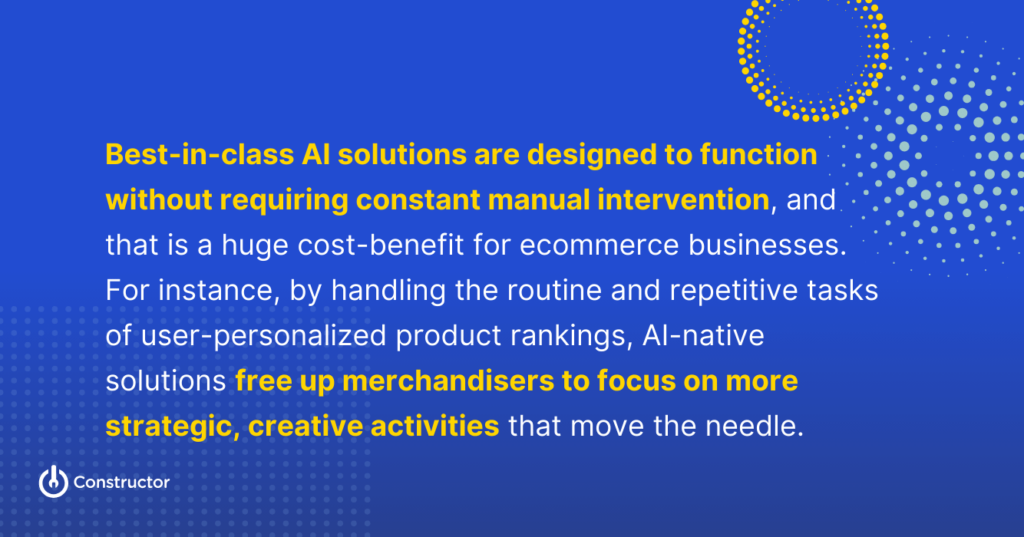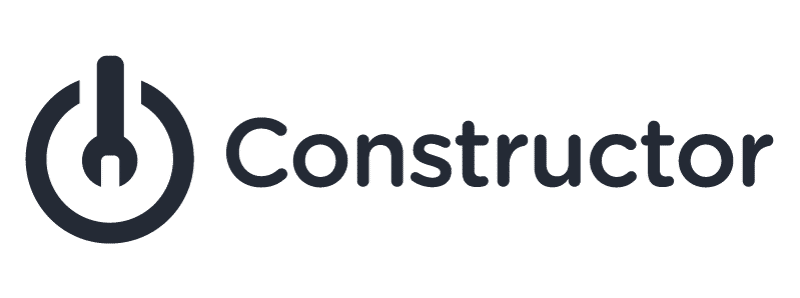Over the past year, the term “artificial intelligence” (AI) has found its way into every savvy marketer’s toolbox, settling in as a sparkling buzzword often equated with unparalleled efficiency and business performance. From personalized product recommendations to automated customer service, AI has undoubtedly transformed the way ecommerce businesses operate in the digital world.
But amidst the hype and buzz surrounding AI, a darker phenomenon lurks: AI washing.
Table of Contents
What is AI Washing?
AI washing is derived from the concept of “greenwashing.” It occurs when companies exaggerate or misrepresent the capabilities of their products or services by associating them with artificial intelligence. In reality, the AI component is minimal or nonexistent.
AI washing can take various forms, ranging from inflated claims about AI capabilities to the use of buzzwords to lure customers. Many companies attach an AI label to components that are relatively basic — or worse, vaporware. This misguides consumers into believing that products or services are more advanced or sophisticated than they actually are.
The best way to contend this deceptive practice is fairly simple: arm yourself with as much knowledge as possible, and ask the right questions. When it comes to translating marketing hype to an actual deliverable, vendors that AI wash their products will struggle to answer certain key questions.
Key Questions to Ask Your Ecommerce Vendor
Last February, the Federal Trade Commission warned businesses to keep “false or unsubstantiated claims” about AI capabilities in check. Since many businesses won’t heed this advice, it’s up to buyers to decipher reality versus hyped-up marketing claims about AI.
Afraid to ask too many questions? In our current state of AI washing in the SaaS industry, there are no wrong inquiries to pose. Let’s take a look at some of the most important questions to help uncover AI washed products when evaluating new vendors and their technologies.

1. Can you prove how your AI delivers tangible results for clients?
A true AI-driven solution built for ecommerce should facilitate hitting business KPIs, and validation shouldn’t be difficult to obtain.
Vendors that can’t openly demonstrate how their technology has delivered value to customers — i.e., revenue, conversions, improved efficiency, cost savings, etc. — through resources like ecommerce-specific case studies should be flagged for potential AI washing.
2. Does your AI get smarter over time?
Machine learning (ML) algorithms allow AI systems to learn from data, identify patterns, and make predictions or decisions without being explicitly programmed to do so or needing constant human intervention. Essentially, they allow AI to get smarter over time.
Ask new vendors to explain exactly how their AI technology learns. If it becomes more sophisticated over time, that means the vendor invested time in developing an AI that affords more complex processing with minimal human intervention — as is the case with Generative AI (GenAI).
On the other hand, AI technologies built to complete specific, limited tasks have more narrow features. This means they might not get smarter over time and have much more limited capabilities — despite technically using AI.
3. Was your AI built in-house or integrated through acquisition?
Due diligence is incredibly important when it comes to evaluating vendors who have integrated AI-powered technology through acquisition. The complexities of integrating acquired technologies (not to mention the unpredictable dynamics of organizational change) make for a difficult landing.
Acqusition on its own doesn’t necessarily mean an automatic red flag, but it should be known that they are often recognized as a main contributor to built-in technical debt.
If a vendor did make an acquisition, you should ask how deeply the tech has been integrated with the core product.
It’s not unusual for businesses to balk at what they see “under the hood,” become deterred from fully integrating with their existing tech stack, and yet go on to claim to have a functioning AI component.
Not quite an outright lie, but murky marketing to say the least.
4. How much human intervention is necessary?
Best-in-class AI solutions are designed to function without requiring constant manual intervention, and that is a huge cost-benefit for ecommerce businesses.
For instance, by handling the routine and repetitive tasks of user-personalized product rankings, AI-native solutions free up merchandisers to focus on more strategic, creative activities that move the needle.

AI-washed products often rely heavily on human intervention to compensate for limited AI capabilities. Understanding the extent to which human involvement is necessary can reveal whether the product’s AI claims are exaggerated.
5. Does AI play a major or minor role in the overall solution?
In many cases, products or services labeled as “AI-powered” have only a minimal AI component.
For instance, a platform may claim their product uses AI for personalization when it’s not part of the core product and might require an additional cost or add-on. Yes, that’s a completely valid way of using AI, but marketing this technology as “AI-native” is misleading at best.
While both native AI and AI features leverage artificial intelligence technologies, they differ in scope, complexity, development approach, and impact on the systems in which they are employed.
How to Overcome AI Washing and Advance with Confidence
Everyone loves a buzzword. They’re fun, trendy, and can make products appear more relatable. But over the past year, marketing teams have flocked to the promises of the term “artificial intelligence” like a digital gold rush, even if their claims exaggerate or completely misrepresent their products.
Buyers beware. When evaluating new ecommerce vendors, it pays to be a healthy skeptic. If some (or all) of a vendor’s AI claims seem too good to be true, start asking questions to decipher what’s AI marketing hype and what will actually deliver tangible results.
For more in-depth questions to ask your ecommerce vendors about their search and product discovery capabilities before signing the dotted line, grab a copy of the ecommerce RFP template.
Product Discovery RFP Template
Ask the right questions to save hours of time with this free spreadsheet.

